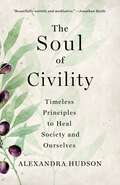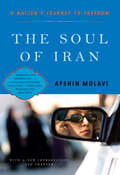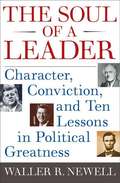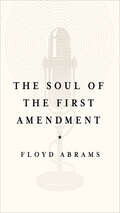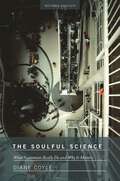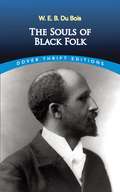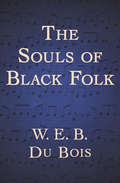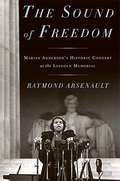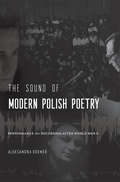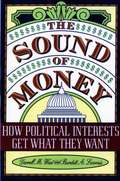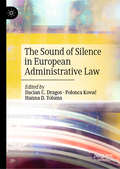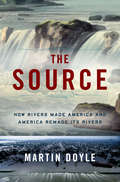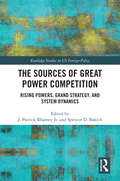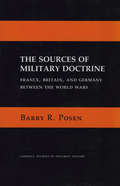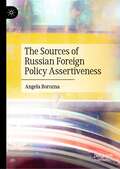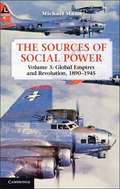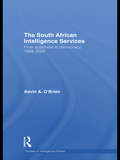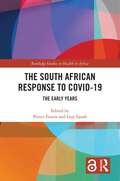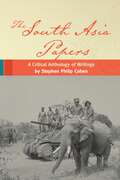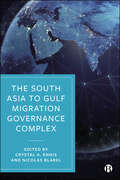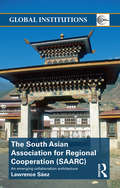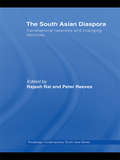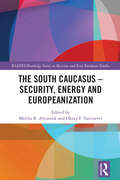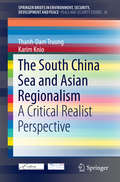- Table View
- List View
The Soul of Civility: Timeless Principles to Heal Society and Ourselves
by Alexandra HudsonAlexandra Hudson, daughter of the "Manners Lady," was raised to respect others. But as she grew up, Hudson discovered a difference between politeness—a superficial appearance of good manners—and true civility. In this timely book, Hudson sheds light on how civility can help bridge our political divide.From classical philosophers like Epictetus, to great twentieth-century thinkers like Martin Luther King Jr., to her own experience working in the federal government during one of the most politically fraught eras in our nation's history, Hudson examines how civility—a respect for the personhood and dignity of others—transcends political disagreements. Respecting someone means valuing them enough to tell them when you think they are wrong.It’s easy to look at the divided state of the world and blame our leaders, the media, or our education system. Instead, we should focus on what we can control: ourselves. The Soul of Civility empowers readers to live tolerantly with others despite deep differences, and to rigorously protest wrongs and debate issues rather than silencing disagreements. A robust public discourse is essential to a truly civil society, and respecting others means telling hard truths. If enough of us decide to change ourselves, we might be able to change the world we live in, too.Provocative, personal, and acutely relevant, The Soul of Civility is an essential book for our era.
The Soul of Iran: A Nation's Struggle for Freedom
by Afshin MolaviThe truths about Iran; quite different truths from versions put forward by Washington, Tehran, and the media. Iran thundered onto the world stage in 1979 with an Islamic revolution that shook the world. Today that revolution has gone astray, a popular democracy movement boldly challenges authority, and young Iranians are more interested in moving to America than in chanting "Death to America." Afshin Molavi, born in Iran and fluent in Persian, traveled widely across his homeland, exploring the legacy of the Iranian revolution and probing the soul of Iran, a land with nearly three millennia of often-glorious history. Like a master Persian carpet maker, Molavi weaves together threads of rich historical insight, political analysis, cultural observation, and the daily realities of life in the Islamic republic to produce a colorful, intricate, and mesmerizing narrative. Originally published in hardcover under the title Persian Pilgrimages, this paperback edition is revised, with a new introduction and epilogue.
The Soul of a Leader
by Waller R. NewellWhat are we looking for in a leader? Has the meaning of leadership changed? Can history provide guidance for the leaders of a rising generation? What defines the soul of a leader? In The Soul of a Leader, political scientist and cultural commentator Waller R. Newell offers a fascinating perspective on the role of leadership in American life today. From the birth of democracy in Periclean Athens to the Founding Fathers' view of statesmanship, from the experiences of Abraham Lincoln to those of modern presidents, this far-reaching and provocative new book explores the many and diverse elements of good statesmanhip, including the timeless qualities all good leaders share. As Newell plumbs the depths of history, he illuminates the moral, psychological, and intellectual resources we inherit from the traditions of the West--traditions steeped in the experience and reflection on statecraft from ancient times onward--and offers a compass for the challenges America's next generation of leaders will face. In this engaging blend of character portraiture, historical perspective, and contemporary political insight, Newell proposes a bold new perspective on the evolution of the modern American presidency, from Franklin Roosevelt to George W. Bush. He steps back in time to evaluate the clashing models of Lincoln and Robert E. Lee, as they captured the struggle for the soul of the American Republic. And, in an essay of masterful historical reach, he contemplates the roots of modern leadership in the story of what he calls "the West's first superpower conflict"--the epic battle between Athens and Sparta, with its echoes of both Vietnam and Iraq. Finally, he draws from these stories ten lessons in political greatness--lessons the next American president will be wise to heed.
The Soul of the First Amendment: Why Freedom of Speech Matters
by Floyd AbramsThe nation&’s most celebrated First Amendment lawyer&“explores the American right to free speech in this thoughtful and concise volume&” (Publishers Weekly). The right of Americans to voice their beliefs without government approval or oversight is protected under what may well be the most honored and least understood addendum to the US Constitution—the First Amendment. Floyd Abrams, a noted lawyer and award-winning legal scholar specializing in First Amendment issues, examines the degree to which American law protects free speech more often, more intensely, and more controversially than is the case anywhere else in the world, including democratic nations such as Canada and England. In this lively, powerful, and provocative work, the author addresses legal issues from the adoption of the Bill of Rights through recent cases such as Citizens United. He also examines the repeated conflicts between claims of free speech and those of national security occasioned by the publication of classified material such as was contained in the Pentagon Papers and was made public by WikiLeaks and Edward Snowden. &“Abrams&’s engaging and plain-spoken reflections will be of interest to those already steeped in constitutional law as well as young readers curious about the nation&’s founding ideals . . . For Abrams, one inescapable truth applies across the history of First Amendment disputes. To allow the government to determine whose speech can be regulated . . . is, as [his] fascinating history shows, literally to play with fire.&”—The Wall Street Journal &“He dives into historic and contemporary controversies that test our adherence to these principles, noting, &‘Speech is sometimes ugly, outrageous, even dangerous.&’&”—The Washington Post
The Soulful Science: What Economists Really Do and Why It Matters - Revised Edition
by Diane CoyleFor many, Thomas Carlyle's put-down of economics as "the dismal science" rings true--especially in the aftermath of the crash of 2008. But Diane Coyle argues that economics today is more soulful than dismal, a more practical and human science than ever before. The Soulful Science describes the remarkable creative renaissance in economics, how economic thinking is being applied to the paradoxes of everyday life. This revised edition incorporates the latest developments in the field, including the rise of behavioral finance, the failure of carbon trading, and the growing trend of government bailouts. She also discusses such major debates as the relationship between economic statistics and presidential elections, the boundary between private choice and public action, and who is to blame for today's banking crisis.
The Souls of Black Folk: Essays And Sketches (Dover Thrift Editions)
by W. E. Du BoisThis landmark book is a founding work in the literature of black protest. W. E. B. Du Bois (1868-1963) played a key role in developing the strategy and program that dominated early 20th-century black protest in America. In this collection of essays, first published together in 1903, he eloquently affirms that it is beneath the dignity of a human being to beg for those rights that belong inherently to all mankind. He also charges that the strategy of accommodation to white supremacy advanced by Booker T. Washington, then the most influential black leader in America, would only serve to perpetuate black oppression.Publication of The Souls of Black Folk was a dramatic event that helped to polarize black leaders into two groups: the more conservative followers of Washington and the more radical supporters of aggressive protest. Its influence cannot be overstated. It is essential reading for everyone interested in African-American history and the struggle for civil rights in America.
The Souls of Black Folk: [annotated]
by W. E. Du BoisW. E. B. Du Bois&’s seminal treatise on the African American experienceThe problem of the Twentieth Century is the problem of the color line.W. E. B. Du Bois was arguably the most progressive African American leader of the early twentieth century, and this collection of essays is his masterpiece. An examination of the black experience in America following emancipation, and an introduction to the historic concept of &“double-consciousness&” as it pertains to that experience, The Souls of Black Folk is an extraordinary literary achievement—a provocative, profound, and courageous clarion call.This ebook has been professionally proofread to ensure accuracy and readability on all devices.
The Sound of Freedom: Marian Anderson, the Lincoln Memorial, and the Concert that Awakened America
by Raymond ArsenaultAward-winning civil rights historian Ray Arsenault describes the dramatic story behind Marian Anderson's concert at the Lincoln Memorial--an early milestone in civil rights history--on the seventieth anniversary of her performance. On Easter Sunday 1939, the brilliant vocalist Marian Anderson sang before a throng of seventy-five thousand at the Lincoln Memorial in Washington--an electrifying moment and an underappreciated milestone in civil rights history. Though she was at the peak of a dazzling career, Anderson had been barred from performing at the Daughters of the American Revolution's Constitution Hall because she was black. When Eleanor Roosevelt resigned from the DAR over the incident and took up Anderson's cause, however, it became a national issue. Like a female Jackie Robinson--but several years before his breakthrough--Anderson rose to a pressure-filled and politically charged occasion with dignity and courage, and struck a vital blow for civil rights. In the 1963 March on Washington, Martin Luther King would follow, literally, in Anderson's footsteps. This tightly focused, richly textured narrative by acclaimed historian Raymond Arsenault captures the struggle for racial equality in 1930s America, the quiet heroism of Marian Anderson, and a moment that inspired blacks and whites alike. You can find this concert on YouTube.
The Sound of Modern Polish Poetry: Performance and Recording after World War II
by Aleksandra KremerAn illuminating new study of modern Polish verse in performance, offering a major reassessment of the roles of poets and poetry in twentieth-century Polish culture. What’s in a voice? Why record oneself reading a poem that also exists on paper? In recent decades, scholars have sought to answer these questions, giving due credit to the art of poetry performance in the anglophone world. Now Aleksandra Kremer trains a sharp ear on modern Polish poetry, assessing the rising importance of authorial sound recordings during the tumultuous twentieth century in Eastern Europe. Kremer traces the adoption by key Polish poets of performance practices intimately tied to new media. In Polish hands, tape recording became something different from what it had been in the West, shaped by its distinctive origins behind the Iron Curtain. The Sound of Modern Polish Poetry reconstructs the historical conditions, audio technologies, and personal motivations that informed poetic performances by such luminaries as Czesław Miłosz, Wisława Szymborska, Aleksander Wat, Zbigniew Herbert, Miron Białoszewski, Anna Swir, and Tadeusz Różewicz. Through performances both public and private, prepared and improvised, professional and amateur, these poets tested the possibilities of the physical voice and introduced new poetic practices, reading styles, and genres to the Polish literary scene. Recording became, for these artists, a means of announcing their ambiguous place between worlds. Kremer’s is a work of criticism as well as recovery, deploying speech-analysis software to shed light on forgotten audio experiments—from poetic “sound postcards,” to unusual home performances, to the final testaments of writer-performers. Collectively, their voices reveal new aesthetics of poetry reading and novel concepts of the poetic self.
The Sound of Money: How Political Interests Get What They Want
by Darrell M. West Burdett A. LoomisIn their compelling new book, The Sound of Money: How Political Interests Get What They Want, West and Loomis probe the connection between interest-group spending and congressional policy making. In recent years, important battles have been fought over health care reform, telecommunications deregulation, and Medicare, to name just a few. The interest groups most successful at influencing policy are those with the most money to spend on advertising and lobbying. West and Loomis caution that as the "sound" of money in American politics grows louder, this new group activism will increasingly affect-and maybe even threaten-the viability of representative government.
The Sound of Silence in European Administrative Law
by Dacian C. Dragos Polonca Kovač Hanna D. TolsmaThis book examines administrative silence in a comparative manner in the EU law and 13 jurisdictions from Europe. Administrative silence is an issue that lies at the intersection of legal and managerial aspects of public administration, a concept that is both reflecting and testing the principles of legal certainty, legality, good administration, legitimate expectations, and effectiveness. Inactivity or excessive length of proceedings appears to be of interest for comparisons, particularly in the context of the recent attempts to develop European convergence models. The book offers in-depth insights into legal regulation, theory, case law and practice regarding positive and negative legal fictions in the selected European jurisdictions.
The Source: How Rivers Made America And America Remade Its Rivers
by Martin DoyleHow rivers have shaped American politics, economics, and society from the beginnings of the Republic to today. America has more than 250,000 rivers, coursing over more than 3 million miles, connecting the disparate regions of the United States. On a map they can look like the veins, arteries, and capillaries of a continent-wide circulatory system, and in a way they are. Over the course of this nation’s history rivers have served as integral trade routes, borders, passageways, sewers, and sinks. Over the years, based on our shifting needs and values, we have harnessed their power with waterwheels and dams, straightened them for ships, drained them with irrigation canals, set them on fire, and even attempted to restore them. In this fresh and powerful work of environmental history, Martin Doyle tells the epic story of America and its rivers, from the U.S. Constitution’s roots in interstate river navigation, the origins of the Army Corps of Engineers, the discovery of gold in 1848, and the construction of the Hoover Dam and the TVA during the New Deal, to the failure of the levees in Hurricane Katrina and the water wars in the west. Along the way, he explores how rivers have often been the source of arguments at the heart of the American experiment—over federalism, sovereignty and property rights, taxation, regulation, conservation, and development. Through his encounters with experts all over the country—a Mississippi River tugboat captain, an Erie Canal lock operator, a dendrochronologist who can predict the future based on the story trees tell about the past, a western rancher fighting for water rights—Doyle reveals the central role rivers have played in American history—and how vital they are to its future.
The Sources of Great Power Competition: Rising Powers, Grand Strategy, and System Dynamics (Routledge Studies in US Foreign Policy)
by Spencer D. Bakich Rhamey J. PatrickThis volume explores the determinants of state power, the strategic options of rising powers, the drivers of conflict in dynamic international systems, and American grand strategy past and present to achieve a more comprehensive understanding of the current era of great power competition.Leveraging insights from international relations, history, economics, and political demography, it offers rich perspectives on the competition among newly rising powers and long-dominant leaders in the international system. This book presents novel theories and innovative empirical investigations into the economic and demographic challenges confronting rising powers, along with new inquiries into these countries’ capacity to mobilize both their citizens and their militaries. While China’s grand strategy has attracted significant attention in recent years, these authors look beyond U.S.–PRC relations by considering the war proneness and strategic repertoires of rising regional powers, including India and Russia. Yet, the possibility of great power war remains a justifiable concern. This book examines the so-called Thucydides’s Trap by exploring both its explanatory power in the conflict that inspired its name, the Peloponnesian War, and the possible mechanisms for averting war between the two most powerful countries in the current era. Finally, several challenges confronting the United States are discussed, including climate change, competition over the interpretation of the international Women, Peace, and Security agenda, and the durability of America’s commitment to upholding the liberal international order.The Sources of Great Power Competition brings together many of the most influential scholars to engage in lively debates about the current and future international system. It will be of interest to foreign policy practitioners and scholars of grand strategy, the causes of war, alliance politics, norms and narratives in foreign policy, power transitions, and international hierarchy.
The Sources of Military Doctrine: France, Britain, and Germany between the world wars
by Barry R. PosenBarry R. Posen explores how military doctrine takes shape and the role it plays in grand strategy-that collection of military, economic, and political means and ends with which a state attempts to achieve security. Posen isolates three crucial elements of a given strategic doctrine: its offensive, defensive, or deterrent characteristics, its integration of military resources with political aims, and the degree of military or operational innovation it contains. He then examines these components of doctrine from the perspectives of organization theory and balance of power theory, taking into account the influence of technology and geography.Looking at interwar France, Britain, and Germany, Posen challenges each theory to explain the German Blitzkrieg, the British air defense system, and the French Army's defensive doctrine often associated with the Maginot Line. This rigorous comparative study, in which the balance of power theory emerges as the more useful, not only allows us to discover important implications for the study of national strategy today, but also serves to sharpen our understanding of the origins of World War II.
The Sources of Russian Foreign Policy Assertiveness
by Angela BoroznaThis book explores the sources of Russia’s foreign policy conduct since the end of the Cold War. It is aimed at those interested in Russian foreign policy, international security, and diplomacy. The book embraces an eclectic approach by applying insights from several strands of IR theory, exploring both international and domestic sources. The author argues that Russian foreign policy is influenced by the country’s strategic culture, which exhibits some persistent elements inherited from Russia’s imperial past and from Soviet times. The challenges to Russia’s security interests from Western policies led to an increase in Russian foreign policy assertiveness. As a result, Russia is becoming more committed to Eurasian integration and nurturing relations with China. This book further argues that Russia’s relations with the post-Soviet states have been and will remain a priority of its foreign relations and, therefore, Russia is likely to continue challenging any Western interference in these states. The author maintains that geoeconomics and the protection of overseas economic interests are becoming more prominent in Russia’s foreign policy calculus. The role of domestic factors in the country’s foreign policy, such as authoritarianism, regime vulnerability, and the role of political factions, is also examined.
The Sources of Social Power
by Michael MannDistinguishing four sources of power – ideological, economic, military and political – this series traces their interrelations throughout human history. This third volume of Michael Mann's analytical history of social power begins with nineteenth-century global empires and continues with a global history of the twentieth century up to 1945. Mann focuses on the interrelated development of capitalism, nation-states and empires. Volume 3 discusses the 'Great Divergence' between the fortunes of the West and the rest of the world; the self-destruction of European and Japanese power in two world wars; the Great Depression; the rise of American and Soviet power; the rivalry between capitalism, socialism and fascism; and the triumph of a reformed and democratic capitalism.
The South African Intelligence Services: From Apartheid to Democracy, 1948-2005 (Studies in Intelligence)
by Kevin A. O'BrienThis book is the first full history of South African intelligence and provides a detailed examination of the various stages in the evolution of South Africa’s intelligence organizations and structures. Covering the apartheid period of 1948-90, the transition from apartheid to democracy of 1990-94, and the post-apartheid period of new intelligence dispensation from 1994-2005, this book examines not only the apartheid government’s intelligence dispensation and operations, but also those of the African National Congress, and its partner, the South African Communist Party (ANC/SACP) – as well as those of other liberation movements and the ‘independent homelands’ under the apartheid system. Examining the civilian, military and police intelligence structures and operations in all periods, as well as the extraordinarily complicated apartheid government’s security bureaucracy (or 'securocracy') and its structures and units, the book discusses how South Africa’s Cold War ‘position’ influenced its relationships with various other world powers, especially where intelligence co-operation came to bear. It outlines South Africa’s regional relationships and concerns – the foremost being its activities in South-West Africa (Namibia) and its relationship with Rhodesia through 1980. Finally, it examines the various legislative and other governance bases for the existence and operations of South Africa’s intelligence structures – in all periods – and the influences that such activities as the Rivonia Trial (at one end of the history) or the Truth and Reconciliation Commission (at the other end) had on the evolution of these intelligence questions throughout South Africa’s modern history. This book will be of great interest to all students of South African politics, intelligence studies and international politics in general.
The South African Response to COVID-19: The Early Years (Routledge Studies in Health in Africa)
by Pieter Fourie Guy LambThis book analyses the first two years of South Africa’s response to the COVID-19 epidemic, from its emergence in early 2020. Drawing on the perspectives of a range of public health experts, economists and other social scientists, and development practitioners, this book argues that understanding this early response will be essential to moderate and improve future policy thinking around health governance and epidemic readiness. This book provides a systemic analysis of not only the epidemiological progression of COVID-19 in South Africa, but also the socio-political factors that will be key in determining the future of the country as a whole, including health system challenges, socio-economic disparities and inequalities, and variable (often contradictory and tardy) policy responses. Overall, this book exposes Manichean thinking and the spurious policy dichotomies that pitch public health against human rights, economic recovery against viral vector control, and science against ideology, with lessons not just for South Africa, but also for elsewhere on the African continent, and beyond. This book will be perfect for researchers and practitioners across Public Health, Health Policy, and Global Health, as well as those with an interest in South African politics and development more generally. The Open Access version of this book, available at http://www.taylorfrancis.com, has been made available under a Creative Commons Attribution-Non Commercial-No Derivatives (CC-BY-NC-ND) 4.0 license.
The South Asia Papers: A Critical Anthology of Writings by Stephen Philip Cohen
by Stephen P. CohenThis curated collection examines Stephen Philip Cohen's impressive body of work.Stephen Philip Cohen, the Brookings scholar who virtually created the field of South Asian security studies, has curated a unique collection of the most important articles, chapters, and speeches from his fifty-year career. Cohen, often described as the "dean" of U.S. South Asian studies, is a dominant figure in the fields of military history, military sociology, and South Asia's strategic emergence.Cohen introduces this work with a critical look at his past writing-where he was right, where he was wrong. This exceptional collection includes materials that have never appeared in book form, including Cohen's original essays on the region's military history, the transition from British rule to independence, the role of the armed forces in India and Pakistan, the pathologies of India-Pakistan relations, South Asia's growing nuclear arsenal, and America's fitful (and forgetful) regional policy.
The South Asia to Gulf Migration Governance Complex
by Crystal A. Ennis and Nicolas BlarelEPDF and EPUB available Open Access under CC-BY-NC-ND licence. The Gulf is a major global destination for migrant workers, with a majority of these workers coming from South Asia. In this book, a team of international contributors examine the often-overlooked complex governance of this migration corridor. Going beyond state-centric analysis, the contributors present a multi-layered account of the ‘migration governance complex.’ They offer insights not only into the actors involved in the different components of migration governance, but also into the varying ways of interpreting and explaining the meaning and value of these interactions. Together, they enable readers to better understand migration in this important region, while also providing a model for analyzing global migration governance in practice in different parts of the world.
The South Asian Association for Regional Cooperation: An emerging collaboration architecture (Global Institutions)
by Lawrence SaezThe South Asian Association for Regional Cooperation (SAARC) is an international organization comprised of the eight countries in South Asia. This work aims examine the institutional structure, objectives and effectiveness of the SAARC in its role as South Asia’s leading regional institution. Drawing on original research it offers a fresh and accessible account of SAARC, arguing that South Asia forms a unique regional security complex that enables certain forms of regional cooperation and bars cooperation on other issue areas. The text provides a comprehensive introduction to the SAARC, describing the historical developments that lead to its formation and examining key issues such as: The inner workings of Regional Centres and, their success in implementing the decisions reached at SAARC summits. How SAARC has sought to address critical new security challenges, such as health pandemics, terrorism, energy security South Asia’s economic cooperation and the South Asia Free Trade Agreement (SAFTA) Challenges that expansion pose to the organization, particularly China’s suggestion to expand beyond the traditional borders of South Asia The work aims to evaluate what scope there is for formal institutions like SAARC to provide a permanent regional security architecture within which South Asian countries can effectively address important issues, and will be of great interest to all students and scholars of Asian security studies and institutions in general and students and scholars of international relations in South Asia in particular.
The South Asian Diaspora: Transnational networks and changing identities (Routledge Contemporary South Asia Series #Vol. 11)
by Rajesh Rai Peter ReevesThe South Asian Diaspora numbers just under 30 million people worldwide, and it is recognized as the most widely dispersed diaspora. It is, moreover, one which of late has seen phenomenal growth, both due to natural increase and the result of a continued movement of professionals and labourers in the late 20th and early 21st century from the subcontinent to countries such as the United States, the United Kingdom, Canada, Australia and Singapore. This book uses the concept of transnational networks as a means to understand the South Asian diaspora. Taking into account diverse aspects of formation and development, the concept breaks down the artificial boundaries that have been dominating the literature between the ‘old’ and the ‘new’ era of migration. Thereby the continued connectedness of most historic South Asian settlements is shown, and the fluid nature of South Asian identities is explored. Offering a unique and original insight into the South Asian diaspora, this book will be of interest to academics working in the field of South Asian Studies, Diaspora and Cultural Studies, Anthropology, Transnationalism and Globalisation.
The South Caucasus - Security, Energy and Europeanization (BASEES/Routledge Series on Russian and East European Studies)
by Meliha B. Altunışık Oktay F. TanriseverThis book explores developments in the countries of the South Caucasus – Armenia, Azerbaijan and Georgia – since the EU included the region in the European Neighbourhood Policy in 2003. It considers issues related to energy, ethnic conflict, steps towards regional integration, and, above all, security – including the involvement of Russia, Iran, Turkey and the United States. It assesses the key importance of energy, argues that the prospects for regional integration are weak, and contends that while the approach of Europe and the United States has been confused and weak, not holding out great hope of EU or NATO membership, Russia’s interest and involvement in the region is strong, and growing.
The South China Sea and Asian Regionalism
by Thanh-Dam Truong Karim KnioThis book offers an innovative approach to the analysis of the current crisis in the South China Sea. Moving beyond the spirit of the UN Convention on the Law of the Sea (UNCLOS), the mechanisms of which are limited to physical geography, it demonstrates how epistemological insights from the field of critical realist philosophy can reveal the importance of cultural and structural conditioning processes in social interactions, processes which shape the conditions for the emergence of crisis points along a spectrum of conflict and cooperation. The potential for conflict resolution and the emergence of new regions in Pacific Asia much depends on the nature of such interactions at many levels (political-economic, semiotic and cultural) based on perceptions of what constitutes the "common" versus a Sinicised version of "Lebensraum".
